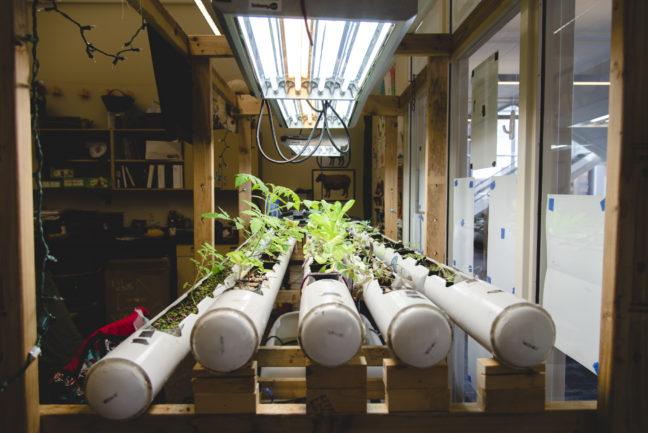Earth Day is coming up on April 22, and the University of Wisconsin not only knows how to celebrate our unique planet but also how to educate students on how to reduce their environmental impact.
The University of Wisconsin Office of Sustainability has teamed up with residence halls, ASM Sustainability Committee and F.H. King High School students for Sustainable Agriculture to promote a more sustainable, eco-friendly lifestyle for students. There will be a week of events leading up to Earth Day, including workshops on composting, living sustainably on a budget and going zero waste, a clothing swap, succulent planting, a Lakeshore Nature Preserve cleanup and more. Details for the events can be found on Facebook.
These events couldn’t be more critical in a world with a problem with sustainability. The Earth’s population produces at least 3.5 million tons of solid waste every day. The average American throws out their own body weight’s worth of garbage every month. Americans throw away 13 million tons of textiles each year. Huge amounts of plastic end up in landfills and take more than 400 years to break down.
With disheartening images like those of the Great Pacific Garbage Patch, there can be no doubt there exists a serious problem with how much is thrown away and how it is dealt with.
But materials that must be thrown away are everywhere and can be difficult to avoid. Many foods come packaged in plastic. Disposable plastic toothbrushes need to be replaced every few months and a student’s daily coffee may come in a plastic-lined paper cup or with a straw that can’t be recycled. Currently, Americans use a whopping 500 million straws per day.
While it may not be feasible for students on already limited budgets to live strict zero-waste lifestyles, they should consider some smaller ways to reduce the amount of trash they produce every day this Earth Day – here are four ways to get started.
- Students can invest in a reusable travel mug and a reusable water bottle to eliminate waste from disposable plastic cups, straws and bottles. Last fall, UW Housing provided students in dorms with free water bottles as a substitute for disposable plastic ones. This effort gave students the chance to reduce greenhouse gas emissions and the number of disposable plastic bottles they use free of charge. Reusable mugs and bottles can save money in the long run, given that free water fountains can be found all over campus and many coffee chains offer discounts for bringing in reusable cups.
- Students in dorms can also add a few small things to their routines to be a little more eco-friendly. Provided they are not greasy, the to-go containers from the dining halls are compostable and compost bins can be found in dorm buildings.
- Additionally, recycling bins for specific items like batteries and plastic bags can be found in many campus buildings, giving students tons of opportunities to dispose of these materials safely and responsibly rather than throwing them away.
- UW students should also think about keeping a bag with them for shopping. Many plastic shopping bags can be extremely compact and easily fit into a backpack for reuse, eliminating the need for another plastic bag and keeping them out of landfills for as long as possible. Reusable tote bags — common freebies at campus events — can make up for the resources needed to produce them with enough uses, but plain plastic bags can be just as effective if they’re being reused instead of thrown away.
Earth Week events take a valuable and undeniably beneficial all-in approach to promoting sustainable lifestyles for UW students. While every student should consider attending one of these events, there are smaller things they can do to make a significant impact. There are 43,820 students enrolled at UW — think about how many plastic bags, coffee cups, straws and plastic bottles that is.
It may not be realistic for every student on campus to dive headfirst into composting and efforts to produce zero-waste, but it is both possible and simple to make small substitutions that make for a cleaner world today and inspire more eco-friendly lifestyles that benefit the planet far into the future. We only get one Earth, and it should be cared for as if every day was Earth Day.
Juliet Dupont (jdupont@wisc.edu) is a freshman intending to major in political science and journalism.


